Worst attack on UN in recent history kills 15 peacekeepers in DR Congo
UN Security Council said the peacekeepers, who were all from Tanzania, were killed in the North Kivu province
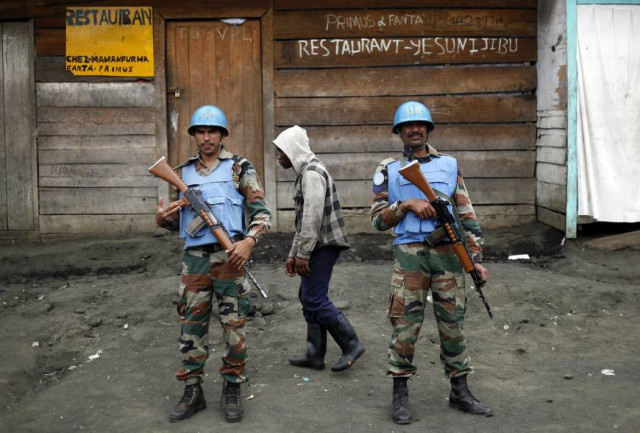
UN soldiers stand guard in Goma, Democratic Republic of Congo. PHOTO: AFP
The UN Security Council said the peacekeepers, who were all from neighbouring Tanzania, were killed in the North Kivu province late Thursday, alongside five Congolese soldiers, with 53 personnel wounded.
UN chief Antonio Guterres led an outpouring of outrage over the deadly ambush, calling it a "heinous" act.
UN peacekeeper killed in DR Congo fighting
"I condemn this attack unequivocally. These deliberate attacks against UN peacekeepers are unacceptable and constitute a war crime," he said in a statement.
Heather Nauert, spokeswoman for the State Department, said Washington was "appalled by the horrific act".
The attack is the worst loss of life to a UN peacekeeping force since 1993 when 24 Pakistani soldiers were killed in Somalia during clashes with a local warlord.
DR Congo's huge eastern region has long been wracked by violence, but fighting between government soldiers and militia groups, as well as inter-ethnic clashes, has increased significantly this year.
North Kivu province, which borders Uganda and Rwanda, has seen a particular uptick in killings and kidnappings between rival ethnic groups.
The UN in October declared a level 3 emergency in DR Congo - a status afforded to conflicts in Iraq, Syria and Yemen.
MONUSCO, the UN's peacekeeping force in DR Congo, said its operating base at Semuliki, North Kivu, was attacked by "suspected ADF elements". ADF are a Ugandan rebel group, one of several armed groups active in the North Kivu region.
DR Congo blast kills schoolgirl, injures peacekeepers
"Attacks against those who are working in the service of peace and stability in the Democratic Republic of the Congo are cowardly," MONUSCO head Maman Sidikou said in a statement, vowing to bring the attackers to justice.
Guterres said it was the worst attack on UN peacekeepers in the organisation's recent history.
"I call on the DRC authorities to investigate this incident and swiftly bring the perpetrators to justice," he said. "There must be no impunity for such assaults, here or anywhere else."
Some those wounded in the attack are in critical condition with the medical evacuation of casualties continuing, he added, while military reinforcements have arrived on the scene.
MONUSCO, a 18,000-member force, has suffered scores of attacks since its establishment in DR Congo, a vast, mineral-rich but chronically unstable nation home to myriad warring groups and ethnic groups.
The ADF was blamed for an ambush on UN peacekeepers in eastern DR Congo in October, which killed two peacekeepers and wounded 12.
The ADF has been accused by Kinshasa and the UN mission of killing more than 700 people in the Beni region since October 2014.
Violence plagues North Kivu on a daily basis, with civilians caught between a coterie of vicious armed groups.
Human Rights Watch has documented more than 500 civilian deaths, at least 1,087 people kidnapped, and 11 reports of mass rape in North Kivu alone since June.
UN congo mission: France condemns attack on Pak blue berets
The UN estimates that more than four million people are internally displaced in DR Congo, and 922,000 people were forced to flee their homes last year - more than in any other country.
Guterres warned in October against budget cuts to MONUSCO, the UN's largest and most expensive peacekeeping mission.
The UN's Under-Secretary-General for Peacekeeping, Jean-Pierre Lacroix, said on Twitter he was "outraged" by Thursday's violence.
Outraged by the attack against @MONUSCO in #NorthKivu DRC last evening, where a large number of @UN peacekeepers have been killed & wounded. Our thoughts & prayers with families & our colleagues in @MONUSCO. Reinforcements are on scene & medical evacuations by Mission ongoing. pic.twitter.com/l84tFHYKMR
— Jean-Pierre Lacroix (@Lacroix_UN) December 8, 2017
The country has also faced violence after President Joseph Kabila, who refused to step down after his final term last December, pushed back a new vote until December 2018.
Kabila, in power since 2001, told the UN General Assembly in September that he was moving "towards credible, transparent and peaceful elections" but concerns persist that tensions over the vote will escalate into large-scale violence.
"This latest attack highlights the urgency of helping people in need and addressing the volatile situation," Guterres said.

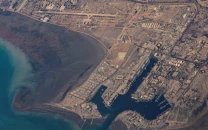
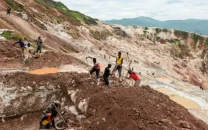
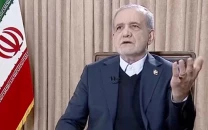
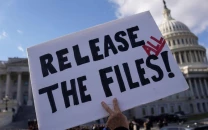
1721969212-0/BeFunky-collage]-(35)1721969212-0-208x130.webp)
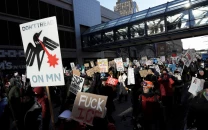












COMMENTS
Comments are moderated and generally will be posted if they are on-topic and not abusive.
For more information, please see our Comments FAQ